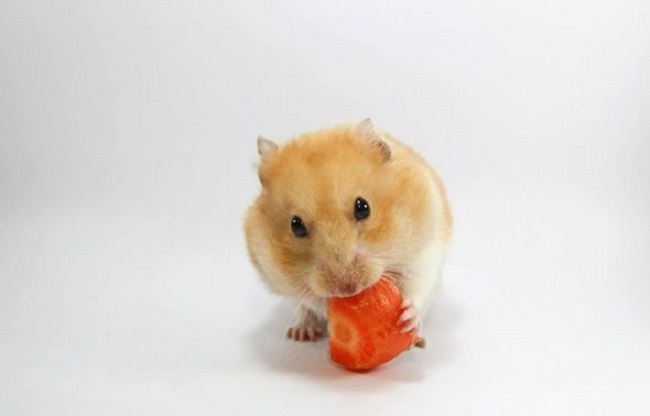When it comes to providing a nutritious diet for our hamsters, it’s essential to know what they can and cannot eat. A common question among hamster owners is, “Can Hamsters Eat Carrots?” The answer is a resounding yes.
However, like any other food, there are details to consider before serving this vibrant vegetable to your furry friends.

Nutritional Benefits of Carrots
Carrots, a vegetable rich in vitamins and minerals, have various health benefits for hamsters. Here’s what carrots bring to the hamster’s dietary table:
Read Also:
Vitamin A: Carrots are packed with Vitamin A, essential for good vision – crucial for hamsters who are naturally nearsighted.
Fiber: High in fiber, carrots aid in digestion, preventing digestive issues like constipation.
Hydration: Carrots have high water content, helping keep your hamster hydrated.
The Importance of Moderation
While carrots are beneficial, it’s crucial to serve them in moderation. Overconsumption can lead to health issues, including:
Sugar Content: Carrots contain sugar. Too much can lead to obesity and diabetes in hamsters.
Digestive Issues: While a small amount of fiber is beneficial, too much can cause diarrhea.
Correct Ways to Feed Carrots to Hamsters
Now that we understand the benefits and risks, let’s dive into how to serve carrots to hamsters safely:
Wash Thoroughly: Make sure to wash carrots thoroughly to remove any pesticides or dirt.
Serving Size: A small slice of carrot is enough for a hamster. Remember, moderation is key.
Frequency: To avoid health issues, feed carrots to your hamster only a couple of times a week.
Do All Species of Hamsters Eat Carrots?
Most hamster species, such as Syrian, Roborovski, Chinese, and Dwarf hamsters, can safely consume carrots. However, as different hamster species have varying nutritional requirements, it’s best to consult a vet before introducing new food items to their diet.
Alternatives to Carrots
If your hamster doesn’t seem to enjoy carrots, there are other vegetables rich in vitamins and fiber you can try, such as cucumbers, broccoli, and spinach.
Monitoring Your Hamster’s Diet and Health
It’s important to monitor your hamster’s eating habits and overall health. The introduction of any new food to your pet’s diet should be gradual and carefully observed.
Some hamsters might not like certain foods, and that’s completely okay. Always remove any uneaten food after a few hours to prevent the growth of mold and bacteria, which could harm your pet.
Allergies and Individual Differences
Just like humans, hamsters may have individual preferences and allergies. If your hamster shows signs of discomfort, such as excessive itching, redness, or swelling after eating carrots, stop feeding it immediately and consult with a vet. Each hamster is unique, so it’s essential to keep an eye on their individual reactions to different foods.
Preparing Carrots for Hamsters
Proper preparation can make carrots even more suitable for your hamster. Peeling the carrot and cutting it into bite-sized pieces can prevent choking hazards.
Alternatively, you could grate the carrot, making it easier for your pet to eat. Remember to store the carrot in the fridge and ensure it’s fresh when serving it to your hamster.
Other Vegetables and Fruits in a Hamster’s Diet
While we’ve focused on the question, “Can Hamsters Eat Carrots?”, it’s important to note that a balanced diet for your pet should include other vegetables and fruits too.
These can include apples (without seeds), pears, peas, and squash. However, avoid feeding your hamster citrus fruits, onions, garlic, or spicy foods, as these can cause health problems.
Read Also:
Conclusion
To answer the question, “Can Hamsters Eat Carrots?” – Yes, they can. Carrots, served in moderation, can be a healthy addition to your hamster’s diet, offering essential vitamins, minerals, and hydration. However, remember to introduce any new food gradually to avoid digestive issues and always monitor your pet’s reaction to it.
























